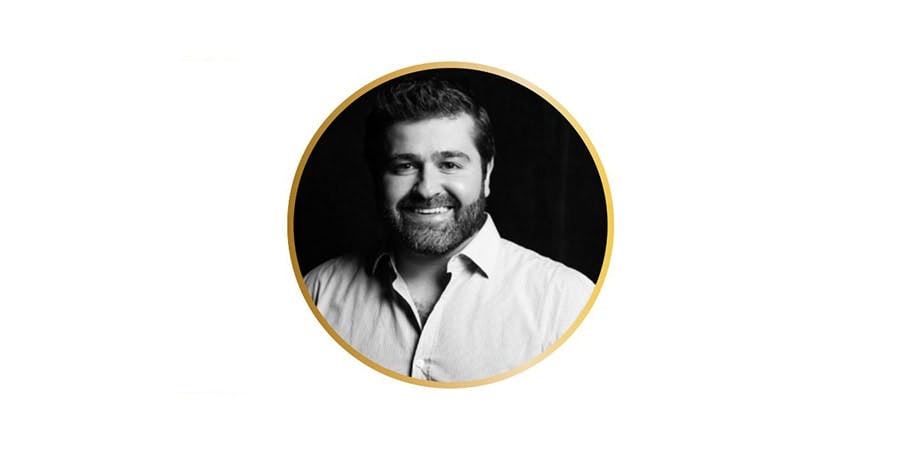Finding hope in health technology

Topics
How can we shape technology to help patients access healthcare experts and treatments without stressing their minds, schedules or finances?
That’s the question the Dr. B team asks ourselves whenever we add or change a step in your online consultation experience. It’s a humble and ambitious mission—as most healthcare missions are. So it’s no coincidence that our CEO and founder, Cyrus Massoumi, has long been mentored by Slava Rubin—the founder and managing member of humbition.
Dr. B is improving healthcare access through technology by offering online treatments for common conditions at the most affordable price point available in the US. humbition invests in founder-forward tech companies that are improving healthcare access in other equally unique and specific ways.
We’re still in the Wild West stage of health tech, where accessing your digital medical records can be a nightmare and naysayers already doubt tech will make a significant dent in the healthcare industry. So we thought we’d ask Slava to share what’s exciting him about health tech’s future—and what patients should be excited to expect on the horizon, too.
This interview has been edited for length and clarity.
Jacqueline Raposo: You founded Indiegogo and were a White House representative for the crowdfunding industry. How did your crowdfunding observations influence your current interest in healthcare equity?
Slava Rubin: A perfect example is how we had the first ever crowdfunded baby on Indiegogo well over a decade ago. This couple in their twenties had very low odds of being able to have a child, so their insurance company was not willing to underwrite their IVF costs. As a final resort, they ended up coming to Indiegogo to crowdfund the cost of the IVF treatments—just to try to fail. They expected it wouldn't work out. But the hopeful mother wanted to try everything possible. The amazing story there is they raised the money, had the in vitro fertilization, and ended up having a child.
Now, it's a very normal process to use crowdfunding to get procedures done that insurance companies don't want to cover. It shows that insurance is complicated—obviously still about business and profit. So it's important to use technologies and innovations to get past that—to help people lead the best lives they can.
Jacqueline: When it comes to fixing another massive healthcare pitfall, what’s your next tech frontier?
Slava: At the more general level—not at the tactical solution level—the challenge is to create more trust. Often, it's complicated for a patient regarding what they're willing to share or not share. The patient will just answer the questions the doctor is asking. But the more information somebody has, the better decisions they can make. In a world able to store endless amounts of information or data about that patient, the doctor can more quickly evaluate scenarios.
The problem right now is that there are always HIPAA concerns, and what the data will be used for, and which insurance provider will get access and then charge them more. I think technology will help solve this so that we can interpret data while ensuring that none is used in a negative way. Being able to get as much transparency and data as possible and being able to access all that information—that’s what will create better solutions. But that trust needs to be created. Using technology to improve that would be huge.
I also think that the user experience in many industries has improved significantly. Forty years ago, trading stocks was highly manual and super difficult. Now it's simple, and everybody uses Robinhood or other platforms to day trade. We have not gotten a simplified user experience in healthcare. There's a ton of opportunity to improve that user experience, whether at the hospital, ER, private practices, in person, or online.
Jacqueline: What’s one thing that bugs you about the quality of our current system that patients shouldn't constantly deal with because it could and should be fixed by better tech?
Slava: Again, I think about the advancements of day trading—it's so easy now, and it's such a good user experience. We're decades away from that in healthcare.
Examples would be as simple as booking appointments. Filling out paperwork or accessing it. Then, dealing with insurance. Who's dealing with the insurance? Is it a patient, or is it a doctor? Dealing with the claims, the follow through—how do you know if it's completed or not? Getting a doctor to check in on you daily: Doctors are busy. The last thing they're doing is treating you like their family member and checking in on you every morning. But that should be how it is, right? Your health providers should be able to do that. And technology will provide that scale.
Jacqueline: I would be happy to get bills within the same quarter. I got a bill from a 2022 doctor's visit last week.
Slava: Yeah, it's ridiculous.
Jacqueline: I feel like it shouldn't be legal for it to take a year and a half for a bill to go through your insurance to get to you.
Slava: Exactly. Dealing with insurance is so painful, right? And it shouldn't be. Technology should be solving that. Also, instead of rushing to ERs, I think technology will be able to triage the various efforts required to serve patients.
ChatGPT is a little over a year old from the consumer perspective. And people are already doing some basic stuff. Like, you go to ChatGPT to get your travel itinerary for a week personalized for you, and it's awesome. The only people that usually could do that are those with a personal travel agent. It's the rich that can afford that, right? Similarly, Klarna, a payments company, announced they created an AI experience that they know is "virtually the perfect customer service rep."
Now, this is very low-level stuff. Obviously, a travel guide is not as sophisticated as a customer service rep, which is not as sophisticated as a first-level triage of medical feedback on your issues. We have steps to get there. But that is where we're going. Apply this to health tech, and there's going to be the equivalent of virtual doctors that will be the first line of defense, which will scale the offering of democratizing access massively. This is very positive because it scales out access for people who otherwise can't afford it. Somebody can live in the middle of Idaho and need some amazing doctor and fly them out on a helicopter—but not everybody can do that. But hopefully, everybody will have access to their mobile phone and these types of solutions.
Jacqueline: This could also help ease our healthcare worker shortage.
Slava: And we should learn from history. In the early days of telehealth, people thought it was total garbage, right? It was like, “You need to do telehealth as in-person health. You need to go see a doctor.” And then Covid accelerated it massively. Now you have entire businesses that are thriving that don't have patients in-person, ever. I think the same thing will happen with the AI doctor experience. I expect the early days will have a lot of naysayers. Then, there will be tipping points that will accelerate things massively for everybody.
Jacqueline: For many, it can feel hard to be excited about healthcare access in this country. What on the horizon are you most excited about?
Slava: For a long time, healthcare was stale and manual. We’re starting to embrace technology. All the AI innovations will ripple into healthcare in the coming years. The convergence of health and AI is going to be massive. There will be naysayers and people concerned about the negative consequences—as they should, and that's fine. But if you take a nap and wake up ten years from now, I think you're going to see incredible things that AI has been able to help change and augment. The nonsense we just talked about related to claims, the operational work, the paperwork, all of that will have fewer humans involved. That means there'll be fewer errors. I know that's hard to believe, but I think that's the issue. And the embracing of technology will be massive and positive. Hopefully, that will layer into lower cost. I won't hold my breath on it. But hopefully, healthcare costs will slow down in terms of their appreciation.
Jacqueline: Why does this matter to you, personally? And why now?
Slava: I'll give you a very high-level answer. My dad died of cancer when I was a kid. And I feel like technology is the path to prevention and cures. A healthy person has, like, 200 wishes. But a sick person only has one. So it’s to improve everyone's life. To be as healthy as possible so they can have a great day and fulfill their life's dreams.
Jacqueline: Finally, how has humbition moved the health tech needle forward already?
Slava: At humbition, we're always looking for amazing entrepreneurs to solve these problems. Tom Lee built One Medical Group and now has a great company called Galileo Health. He’s incorporating a lot of these AI capabilities and knowledge into his mobile app experience as a first layer of triage, trying to service his patient base. We invested in Galileo when it was just an idea in his mind, and now he's growing rapidly and helping many people live better lives.
Another one quite different on the spectrum of health tech as it relates to food is Chef Robotics, which augments the need for humans to be in line chopping carrots to make soup, for example. Instead, they use robots that can use AI and vision to adjust and adapt, so you can literally augment the need for humans to do these horrible, repetitive tasks in super cold environments where they can get sick and potentially contaminate the food.
So these are two very different examples of using technology to improve people's lives as it relates to their health. And obviously, we love what Cyrus and you all are doing with Dr. B.
Topics
Sign up for the free Dr. B newsletter for a weekly report on the latest in healthcare + research-based advice for staying healthy and mentally well.
